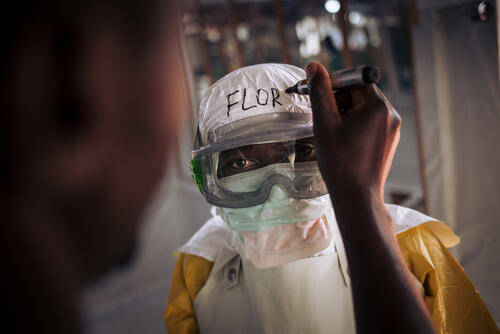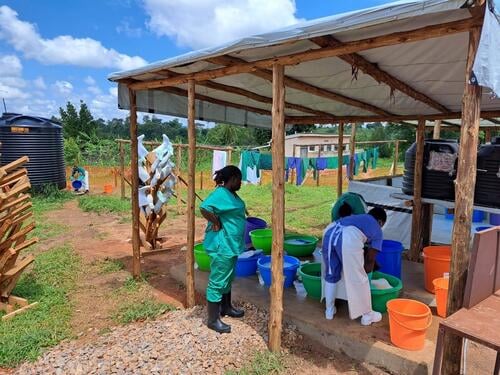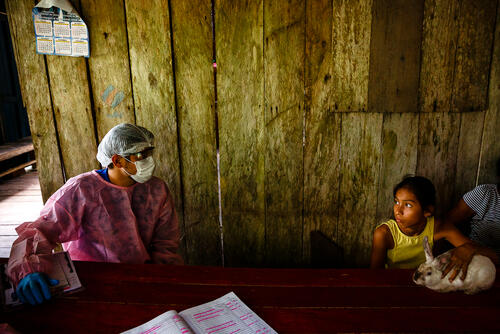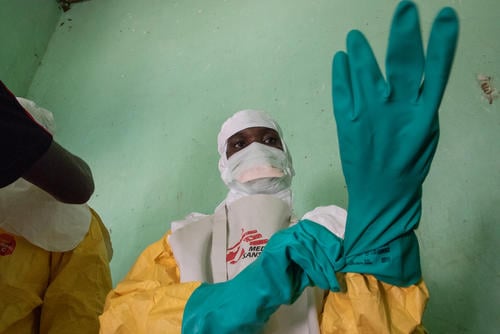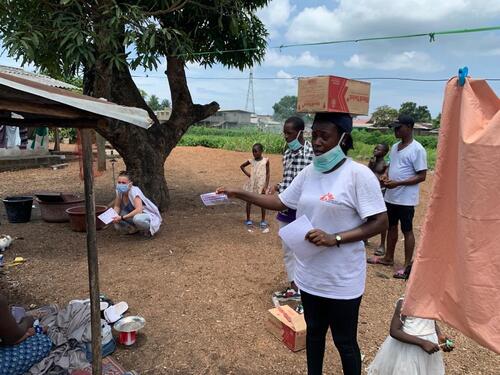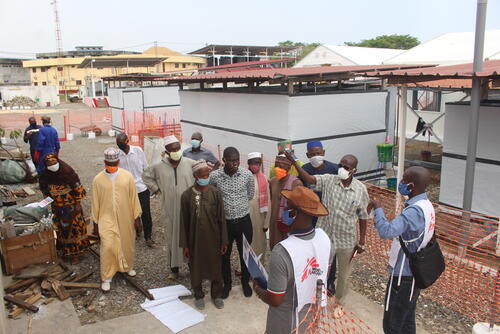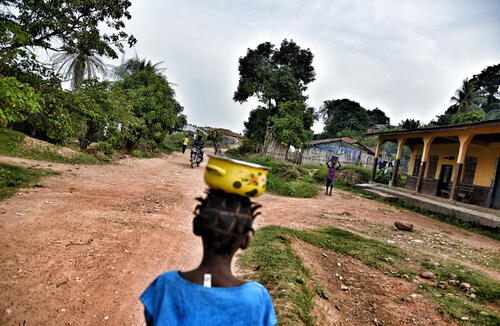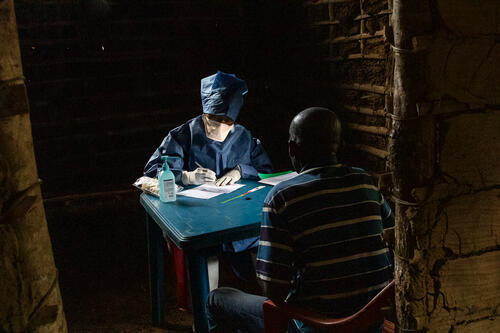Outbreaks can kill 25 to 90 per cent of those infected. Until recently, there were no tools to prevent or treat Ebola; today a preventive vaccine and curative drugs are available. MSF has responded in almost all reported outbreaks over the past years.
The 2014-2016 Ebola epidemic in West Africa was unprecedented: 67 times the size of the largest previously recorded outbreak, it reached urban areas, and killed more than 11,300 people. Hundreds of health workers died, decimating the already-struggling healthcare systems of Liberia, Guinea and Sierra Leone.
Since then, the Democratic Republic of Congo has experienced a succession of outbreaks since March 2018.
Quick facts about Ebola and Marburg

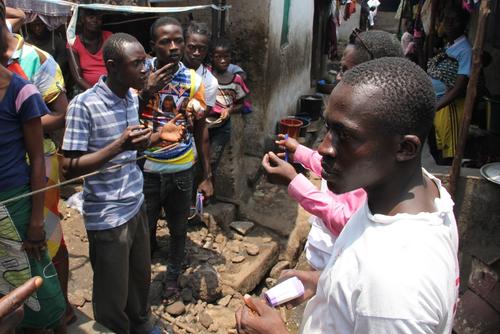
Once a case of Marburg or Ebola is confirmed, a swift response is vital. The needs of patients and affected communities must remain at the heart of the response, which can be defined by six main pillars : care and isolation of patients; tracing and follow up of patient contacts; raising community awareness of the disease such as how to prevent it and where to seek care; conducting safe burials; proactively detecting new cases; and supporting existing health structures.

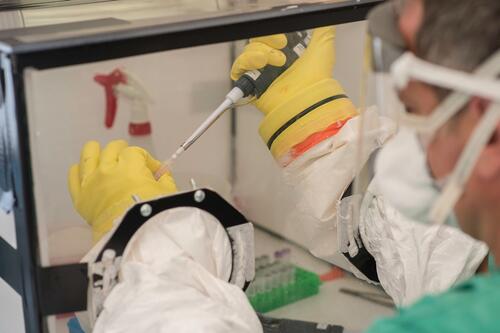
Diagnosing Ebola or Marburg is difficult because early symptoms, such as fever and sore throat, are common to many illnesses. A patient presenting early symptoms should be cared for and isolated to prevent further risk of infection to relatives and care takers. Public health professionals should be notified and a laboratory test must be carried out to confirm a diagnosis. Such tests are an extreme biohazard risk and should be conducted under maximum biological containment conditions.

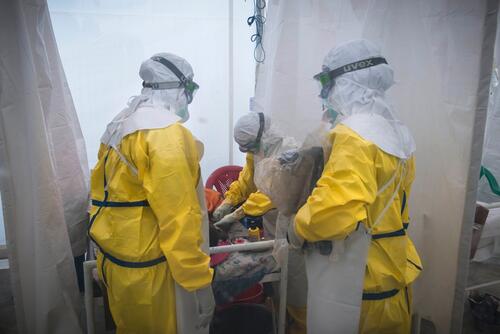
There are now curative drugs available to treat Ebola. These were developed during the West Africa outbreak and trialled and used during recent outbreaks in DRC. Otherwise, supportive care, such as hydrating the patient, nutritional support, providing fever and pain medication, and drugs to reduce vomiting and diarrhoea are provided. Other diseases the patient may have such as malaria or sepsis, should also be treated. Patients should be isolated to prevent infecting others. Psychological support should be provided to help patients and families.

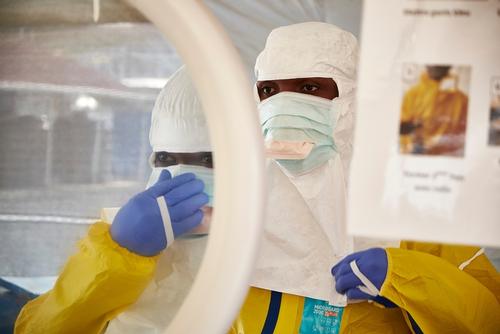
Human to human transmission occurs through contact with bodily fluids of an infected person or through surfaces contaminated with these fluids. Infection control in health centres is vital to reduce risks for other patients, for caregivers and health workers. Those caring for infected patients must wear personal protective equipment (PPE). Direct contact with the deceased can transmit the virus, so burial teams also use PPE, and safe burials must be carried out in a dignified manner for family members.

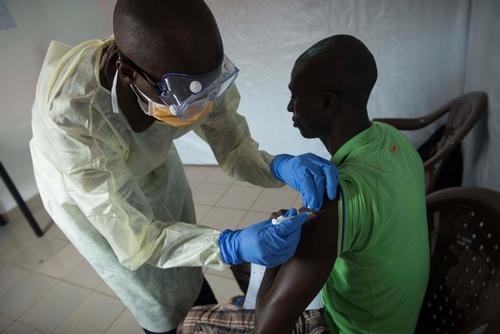
In the wake of the 2014-2016 West Africa Ebola epidemic, a vaccine was developed that can help control an outbreak. The vaccine, rVSV-ZEBOV, was trialled and subsequently used in a series of successive Ebola outbreak in DRC, as part of the overall strategy to control the epidemic; over 40,000 people were vaccinated during DRC’s eleventh Ebola outbreak, which ended in November 2020. Ebola frontline workers and contacts of Ebola patients are those who are vaccinated on a priority basis during an outbreak.

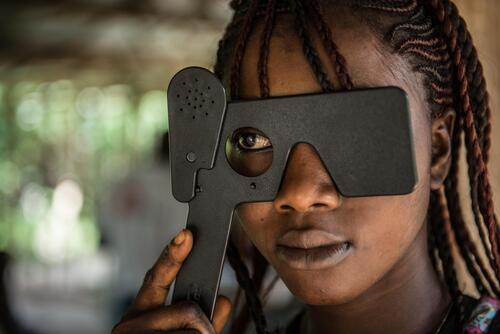
Survivors often face stigma and are sometimes ostracised from their communities. This, and the trauma of having lived through such a deadly disease, often requires counselling. People may experience ongoing physical side-effects, such as joint pain, headaches and eye problems that require treatment and follow up. MSF established Ebola survivor centres in the three worst-affected countries after the West Africa epidemic.
Featured

Crisis update - 2 November 2015
Coincident polio and Ebola crises expose similar fault lines in the current global health regime

A month in focus: August 2015

Attention, World: The Ebola fight isn’t over

28,500 children vaccinated against measles
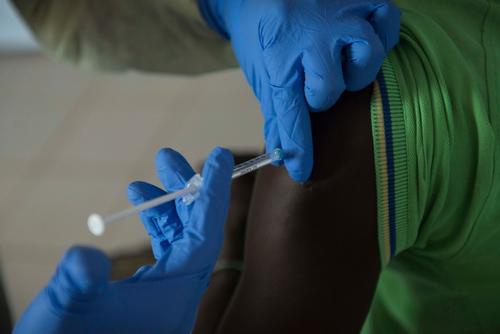
Getting closer to an Ebola vaccine

crisis update - 17 July 2015

“We must finish the job”

MSF response to WHO Ebola Interim Assessment Panel report
Research & Publications
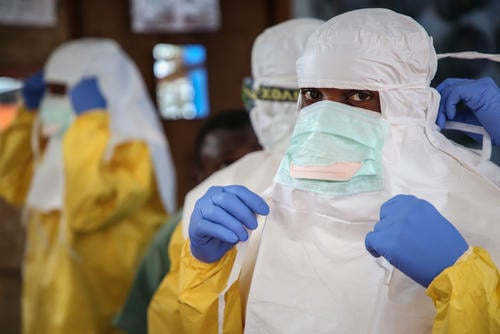
Ebola in the DRC: between operational trial and error and scientific uncertainty
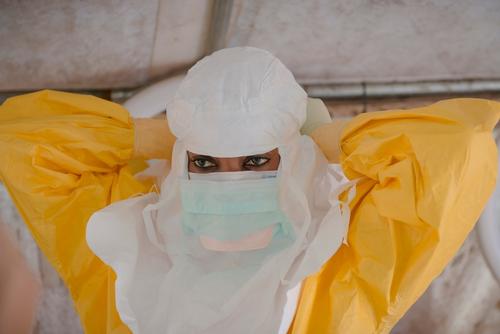
The Politics of Fear

Antimalarial drug reduced patient mortality by 31%
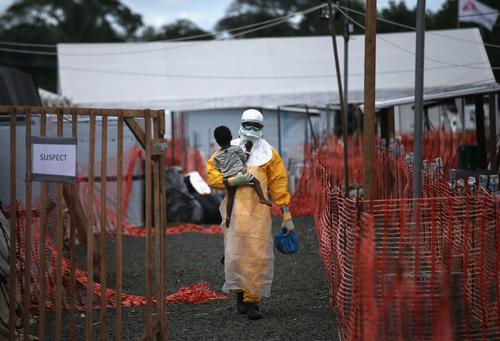
Ebola: Pushed to the limit and beyond
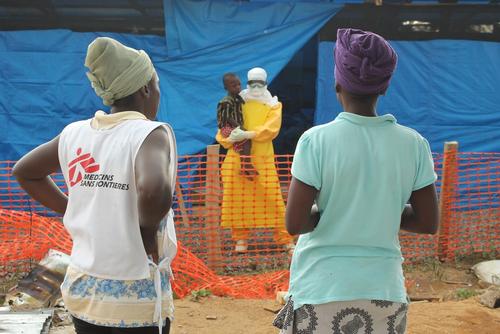
Surviving Ebola
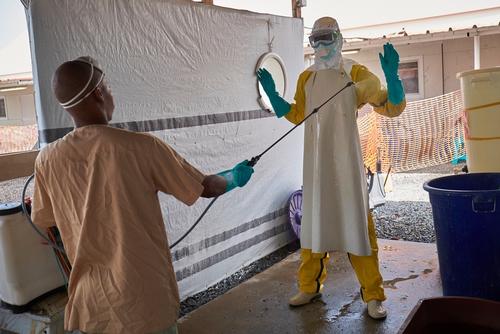
Killer Diseases

MSF Field Research
We produce important research based on our field experience. So far, we have published articles in over 100 peer-reviewed journals. These articles have often changed clinical practice and have been used for humanitarian advocacy. All of these articles can be found on our dedicated Field Research website.
Visit site



